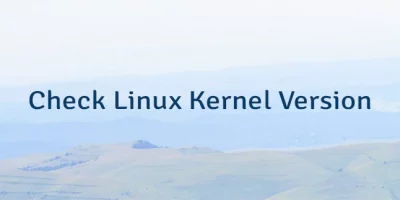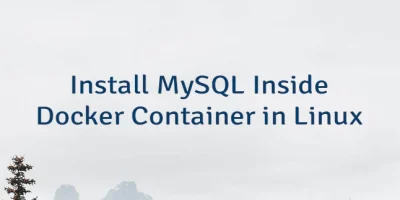SurrealDB is a versatile database designed to simplify backend development by combining features of traditional relational, document, graph, and key-value databases. It provides real-time queries, built-in authentication, and native support for structured and unstructured data without needing additional backend services.
This tutorial explains how to install SurrealDB inside a Docker container on Linux. Commands have been tested on Ubuntu.
Prepare environment
Make sure you have installed Docker in your system. If you are using Ubuntu, installation instructions can be found in the post.
Install SurrealDB
Before starting, create directory for data:
sudo mkdir -p /opt/surrealdb/dataSet user, which ID is 65532 as owner for newly created directory:
sudo chown -R 65532:65532 /opt/surrealdbNote: it doesn't matter that user (ID: 65532) doesn't exist on host system. This user will be created in the container.
- Host network
Run the following command to create a container for SurrealDB that uses host network:
docker run -d --name=surrealdb --restart=always --network=host \
-v /opt/surrealdb/data:/data \
surrealdb/surrealdb start rocksdb:/data/mydatabase.db- User-defined bridge network
User-defined bridge network can be used for listening on different port. By default, SurrealDB service is listening on port 8000. It can be changed with -p option.
docker network create app-netdocker run -d --name=surrealdb --restart=always --network=app-net \
-p 8080:8000 \
-v /opt/surrealdb/data:/data \
surrealdb/surrealdb start rocksdb:/data/mydatabase.dbTesting SurrealDB
Send a GET request to check if the SurrealDB service is running:
curl http://<IP_ADDRESS>:8000/versionThis endpoint returns SurrealDB version.
Note: Replace <IP_ADDRESS> with the system's actual IP address.
Uninstall SurrealDB
To completely remove SurrealDB, remove its container:
docker rm --force surrealdbRemove SurrealDB image:
docker rmi surrealdb/surrealdbYou can also remove SurrealDB data:
sudo rm -rf /opt/surrealdbIf a user-defined bridge network was created, you can delete it as follows:
docker network rm app-net



Leave a Comment
Cancel reply